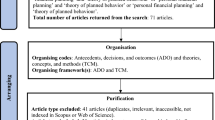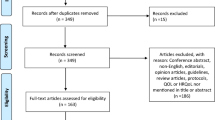Abstract
The capability approach, originated by Amartya Sen is among the most comprehensive and influential accounts of justice that applies to issues of health and health care. However, although health is always presumed as an important capability in Sen’s works, he never manages to fully explain why health is distinctively valuable. This paper provides an explanation. It does this by firstly laying out the general capability-based argument for health justice. It then discusses two recent attempts to justify why health is distinctively valuable from within a capability framework – these are Sridhar Venkatapuram’s conception of health as the central human meta-capability and, respectively, Norman Daniels’ embrace of the capability metric in his use of Rawls’ principle of fair equality of opportunity. The paper argues that none of these accounts succeed in providing a plausible justification of the value of health. Finally, the paper suggests an alternative more complex justification, closely tied to different but central element of the capability view, that captures the core intuitions of both Venkatapuram and Daniels’ accounts but without being vulnerable to the objections raised against each of them. This, the paper concludes, provides a promising ground on which the capability view on health justice should be founded.
Similar content being viewed by others
Notes
These arguments against welfarism are informed by Dworkin’s well-known Louis and Jude cases (2000, p. 49–59).
Although non-naturalists rarely focus on organisms other than human beings, I use the term “organism” here in both definitions in order to make them more closely related. This is not inconsistent, since human beings are organisms.
Note that Nordenfelt would not consider such disadvantages instances of health-deficits (Nordenfelt 2000, p. 71–73). Venkatapuram, on the contrary, would, due to his commitment to the definition of health as the meta-capability to access Nussbaum’s central human functionings.
Since the topic of this paper is the value of health (not its meaning), I will not defend a specific theory of health. However, as is made clear by the discussion here, I believe we would do best by adopting a naturalist but non-statistical definition. As a personal note, I see much potential in Daniel Hausman’s recently suggested “functional efficiency account” (2012).
This merely implies that some level of health functioning is important for any human life. It does not imply the much stronger claim, that health necessarily entails the freedom to what we value about life. Thus, my argument here against Daniels’ view is compatible with my rejection of Venkatapuram’s meta-capability conception.
References
Anderson E (1999) What is the point of equality? Ethics 109(2):287–337
Anderson E (2010) Justifying the capabilities approach to justice. In: Brighouse H, Robeyns I (eds) Measuring justice: primary goods and capabilities. Cambridge University Press, Cambridge, pp 81–100
Arneson R (1989) Equality and equal opportunity for welfare. Philos Stud 56(1):77–93
Boorse C (1997) A rebuttal on health. In: Humber JM, Almeder RF (eds) What is disease? Humana Press, Totowa, pp 1–134
Claassen C, Düwell M (2013) The foundations of capability theory: comparing Nussbaum and Gewirth. Ethic Theory Moral Prac 16(3):493–510
Clayton M, Williams A (1999) Egalitarian justice and interpersonal comparisons. Eur J Polit Res 35:445–464
Cohen GA (1993) Equality of what? On welfare, goods, and capabilities. In: Sen A, Nussbaum M (eds) The quality of life. Oxford University Press, Oxford, pp 9–29
Daniels N (1981) Health-care needs and distributive justice. Philos Publ Aff 10(2):146–179
Daniels N (2008) Just health: meeting health needs fairly. Cambridge University Press, New York
Daniels N (2010) Capabilities, opportunity, and health. In: Brighouse H, Robeyns I (eds) Measuring justice: primary goods and capabilities. Cambridge University Press, Cambridge, pp 131–149
Dworkin R (2000) Sovereign virtue. Harvard University Press, Cambridge
Engelhardt HT Jr (1974) The disease of masturbation: values and the concept of disease. Bull Hist Med 48:234–248
Hausman D (2012) Health, naturalism, and functional efficiency. Philos Sci 79(4):519–541
Hurley S (2007) The ‘what’ and the ‘how’ of distributive justice and health. In: Holtug N, Lippert-Rasmussen K (eds) Egalitarianism: new essays on the nature and value of equality. Oxford University Press, Oxford, pp 308–334
Nordenfelt L (1987) On the nature of health: An action-theoretic approach. Dordrecht, Holland
Nordenfelt L (2000) Action, ability and health: essays in the philosophy of action and welfare. Kluwer Academic Publishers, Dordrecht
Nordenfelt L (2007) The concepts of health and illness revisited. Med Healthc Philos 10:5–10
Nussbaum M (2000) Women and human development. Cambridge University Press, Cambridge
Nussbaum M (2011) Creating capabilities: the human development approach. The Belknap Press of Harvard University Press, Cambridge
Olsaretti S (2005) Endorsement and freedom in Amartya Sen’s capability approach. Econ Philos 21:89–108
Ruger JP (2010) Health and social justice. Oxford University Press, Oxford
Scanlon TM (1975) Preference and urgency. J Philos 72(1):655–669
Schwartz P (2007) Defining dysfuntion: natural selection, design, and drawing a line. Philos Sci 74:364–385
Sen A (1979) Equality of what? The tanner lectures on human values. Stanford University, Palo Alto
Sen A (1992) Inequality reexamined. Oxford University Press, Oxford
Sen A (1993) Capability and well-being. In: Sen A, Nussbaum M (eds) The quality of life. Oxford University Press, Oxford, pp 30–53
Sen A (2002) Why health equity? Health Econ 11:659–666
Venkatapuram S (2011) Health justice: an argument from the capabilities approach. Polity Press, Cambridge
Venkatapuram S (2013) Health, vital goals, and central human capabilities. Bioethics 27(5):271–279
Williams A (2002) Dworkin on capability. Ethics 113:23–39
Wolff J, de Shalit A (2006) Disadvantage. Oxford University Press, Oxford
Acknowledgments
I owe many thanks to two anonymous reviewers and the editors of Ethical Theory and Moral Practice for their time and very useful comments. A special thanks to Daniel Hausman, J. Paul Kelleher, Kasper Lippert-Rasmussen, and Stephen Latham for very insightful comments on earlier drafts. I am also grateful to the members of the Department of Medical History and Bioethics, University of Wisconsin-Madison; the Yale University Interdisciplinary Center for Bioethics; as well as members of the Political Theory section at Aarhus University.
Author information
Authors and Affiliations
Corresponding author
Rights and permissions
About this article
Cite this article
Nielsen, L. Why Health Matters to Justice: A Capability Theory Perspective. Ethic Theory Moral Prac 18, 403–415 (2015). https://doi.org/10.1007/s10677-014-9526-8
Accepted:
Published:
Issue Date:
DOI: https://doi.org/10.1007/s10677-014-9526-8




